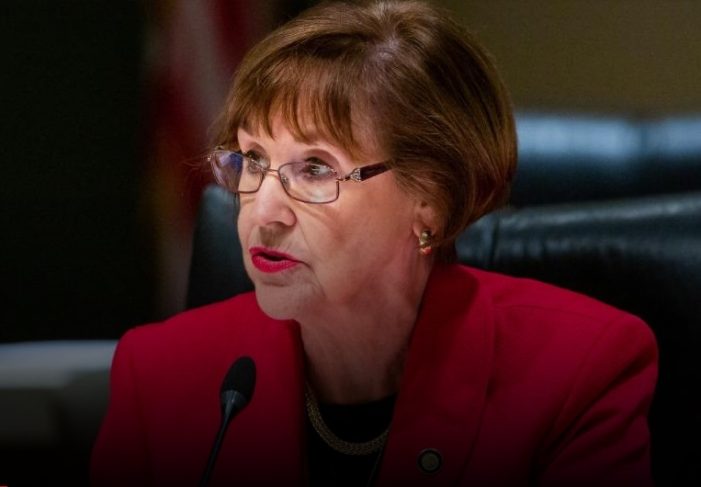By Dara Kam, The News Service of Florida
TALLAHASSEE — A proposed cap on the level of euphoria-inducing THC in medical marijuana has hit a snag in the Senate, leaving a priority of the House in jeopardy as time runs down on the legislative session.
Senate Health Policy Chairwoman Gayle Harrell, R-Stuart, introduced a proposal Monday that would have capped THC levels in medical marijuana for patients under age 21. Harrell tried to add the plan to a broad Department of Health legislative package (SB 230) but backed away after facing questions from members of the Senate Rules Committee.
Monday — 11 days shy of the scheduled March 13 end of the legislative session — was the first time lawmakers in either chamber had formally considered a proposed 10 percent THC cap.
But House Speaker José Oliva, R-Miami Lakes, has called the cap a priority, while Senate leaders have remained skeptical about the issue.
Echoing the arguments of Oliva and other House leaders, Harrell pointed to research outlined in “a whole variety of medical articles” describing the dangers of high doses of THC on adolescents’ brains.
Harrell referred to a controversial article published in the medical journal The Lancet that linked smoking high-THC marijuana — 10 percent or higher — with psychosis.
Limits on the strength of THC, or tetrahydrocannabinol, are necessary to protect developing brains, she told the Rules Committee.
“I am very concerned about what is happening to our young people,” Harrell said. “The studies that are coming out on brain development show that medical marijuana … has a very deleterious effect, especially on young adults.”
Harrell’s proposal would have capped THC in all forms of medical marijuana for patients under 21, with two exceptions. The cap would not have applied to patients who are terminally ill, and doctors could have requested a waiver from the Department of Health for patients they believe need higher levels of THC.
But Harrell’s amendment ran into trouble when several senators on the Rules Committee began questioning the rationale for the cap.
For example, Sen. Jeff Brandes, a St. Petersburg Republican who has long advocated for medical marijuana, reminded Harrell that children under age 18 already are required to have approval from two doctors to be eligible for the cannabis treatment.
Brandes asked Harrell if she had any “specific example of any person today in Florida that has been harmed” by medical marijuana.
Harrell said she could provide “a whole variety of medical articles … that will give you significant findings that they are seeing.”
The bill was temporarily set aside, and Harrell withdrew the THC amendment when the health department’s package was re-introduced later Monday afternoon.
Ron Watson, a lobbyist who represents one of the state’s medical marijuana operators, said the cap would “put at risk the most vulnerable medical cannabis patients in Florida” who are currently using higher-potency THC products.
“We believe a patient’s course of treatment should only be decided by a physician in collaboration with a parent and their child,” Watson, who works for MüV Florida, told The News Service of Florida.
Watson said a 10 percent cap is “arbitrary” and “based on inconclusive research.”
With less than two weeks left in the legislative session, the House has not introduced or considered a THC cap. But it is not unusual for high-priority issues to become part of the horse-trading between House and Senate leaders in the waning days — or hours — of the session.
“I think it’s important that we pass it. We’re seeing different strains. Now in Europe, there are strains that are 100 times stronger,” Oliva said last month. “And we’re starting to learn that this has some schizophrenia-type results, and especially in young developing brains. And so it is, in fact, a priority for us.”


“I think it’s important that we pass it. We’re seeing different strains. Now in Europe, there are strains that are 100 times stronger,” Oliva said last month.
–Patients often use cannabis concentrates that are tested well above 90% thc content. Why would it matter if we develop strains that are 10,000 times more potent when we are just extracting thc from the plant matter anyway? It wouldn’t! How could it Oliva?
When politicians are tasked with writing legislature on topics they have no experience or knowledge of the public suffers. It’s not only embarrassing its dangerous.